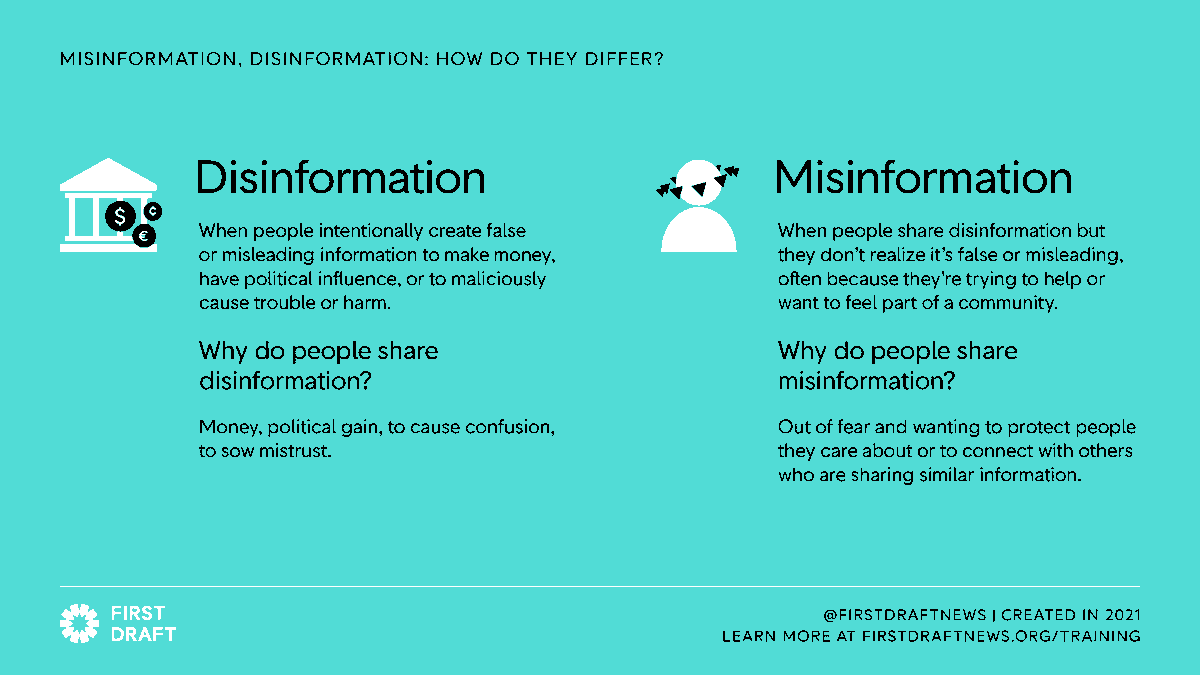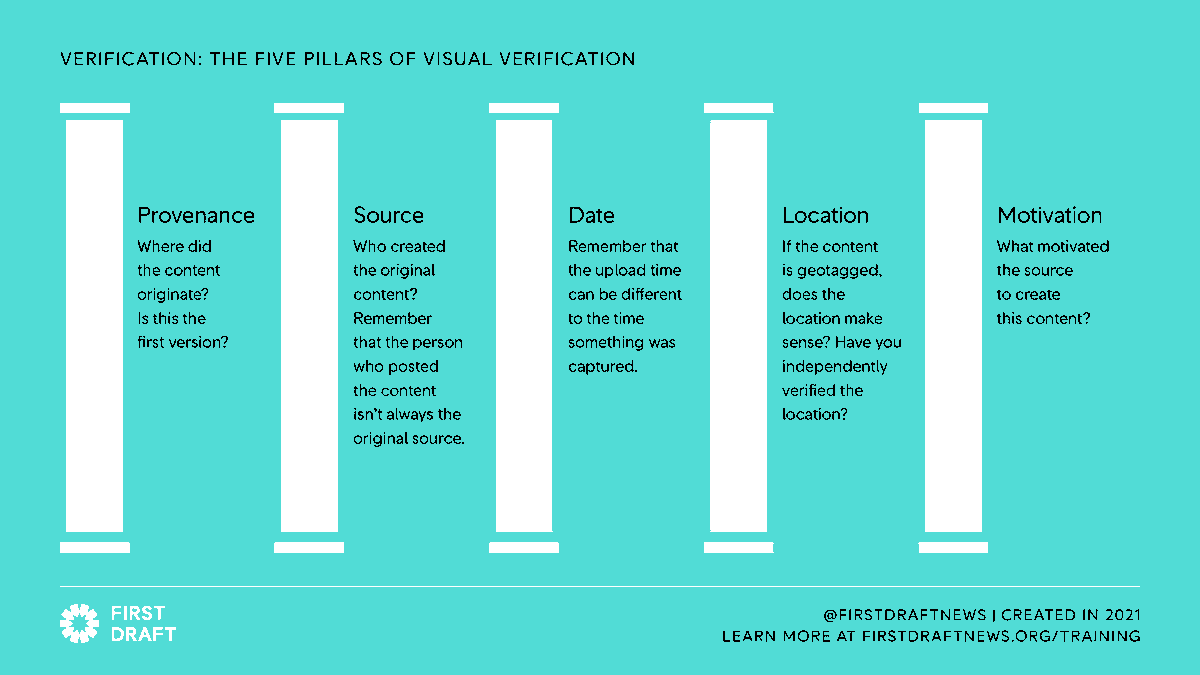A large amount of mis- and disinformation has circulated on social media in multiple languages over the past few days regarding #Ukraine. Trustworthy information is as important as ever in times of crisis, so here are our top tips and tools 👇
First and foremost, be wary of the difference between MISinformation and DISinformation. While they can seem interchangeable, the difference lies in the intent. Precise language is important e.g. propaganda can fall under the umbrella of disinformation 

Second, visual misinformation gains a lot of attention. We’ve seen time and time again old photos and videos recirculated during times of crisis, which can cause more chaos and confusion. Preventing this can be as easy as running a reverse image search
https://twitter.com/estherswchan/status/1496722300288176129
You can run reverse image searches on a few different search engines. We recommend using the browser extension RevEye, which puts all these searches just one click away
chrome.google.com/webstore/detai…
chrome.google.com/webstore/detai…

Going deeper, you can run checks on all of our five pillars of visual verification. The more you can dig up about each pillar, the stronger your verification will be.
Some tools you can use: start.me/p/vjv80b/first…
Some tools you can use: start.me/p/vjv80b/first…

Imposter accounts are also common, pretending to be trusted sources of information or a certain identity group. Here’s a basic checklist for making sure you’re getting information from a trustworthy account on social media: 

If you decide to share falsified visuals as part of a debunk, make sure to use an overlay to prevent the image from being recirculated out of context. This can be as simple as adding a watermark over the image labeling it “unverified” or “out of context”
firstdraftnews.org/articles/how-w…
firstdraftnews.org/articles/how-w…
Archiving the content you come across is important for historical and legal purposes:
https://twitter.com/Lucinda_Beaman/status/1496939273123414016
For further reading: @bellingcat's earlier advice on how to report (and how not to report) on Russian disinformation provides guidance on how to use precise language
bellingcat.com/resources/how-…
bellingcat.com/resources/how-…
Finally, you may come across distressing imagery during this time. Take breaks and refer to this guide from @DartCenter on how to reduce your trauma load: dartcenter.org/content/workin…
• • •
Missing some Tweet in this thread? You can try to
force a refresh








